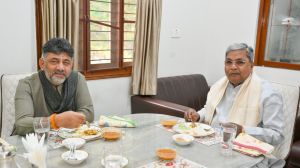At a time when tensions between India and Pakistan are high over the removal of special status to Jammu and Kashmir under Article 370, Islamabad has decided to grant consular access on Monday to Kulbhushan Jadhav, the Indian national in its custody.

India had refused the earlier offer. India has said that it had asked Pakistan to provide “unimpeded” consular access in an “environment free from the fear of intimidation and reprisal”, in line with a ruling by the International Court of Justice (ICJ).
Announcing the latest decision Sunday, Pakistan Foreign Ministry spokesperson Mohammad Faisal posted on Twitter: “Consular access for Indian spy Commander Kulbhushan Jadhav, a serving Indian naval officer and RAW operative, is being provided on Monday 2 September 2019, in line with Vienna Convention on Consular relations, ICJ judgement & the laws of Pakistan. Commander Jadhav remains in Pakistan’s custody, for espionage, terrorism and sabotage.”
India has always disputed Pakistan’s claims on Jadhav’s occupational status, and maintained that he retired from the Navy and was pursuing his own business when he was abducted from Iran and brought to Pakistan illegally.
According to sources, negotiations between Delhi and Islamabad have been over “privacy” during the meeting between Indian officials and Jadhav. “We don’t want anyone to listen in on our conversation (with Jadhav),” sources said.
There are a number of issues on which discussions are being held between Indian diplomats in Islamabad and Pakistani officials: on the presence of officials from Pakistan, other than security personnel; a glass partition; and, audio-visual recording of the discussion.
Story continues below this ad
The two sides are also discussing how many Indian representatives will conduct Jadhav’s interview and the duration.
India has argued that Article 36, Paragraph 1(a) of the Vienna Convention says that “consular officers shall be free to communicate with nationals of the sending state and to have access to them. Nationals of the sending state shall have the same freedom with respect to communication with and access to consular officers of the sending state.” In this case, India is the “sending state”.
Delhi has also pointed to Paragraph 1(c), which says that “consular officers shall have the right to visit a national of the sending state who is in prison, custody or detention, to converse and correspond with him and to arrange for his legal representation”.
But Islamabad has said that it will follow “Pakistan’s laws” since Article 36, Paragraph 2 says that “the rights referred to in Paragraph 1 of this Article shall be exercised in conformity with the laws and regulations of the receiving state, subject to the proviso, however, that the said laws and regulations must enable full effect to be given to the purposes for which the rights accorded under this Article are intended.”
Story continues below this ad
In July, India had asked Pakistan to grant “full consular access” to Jadhav at the earliest. Sources said India does not want the meeting to become a “sham” and a “propaganda exercise”, like the one that took place in December 2017, when Jadhav’s mother and wife went to see him. India had then protested the treatment meted out to the two.
Pakistan’s latest proposal to grant consular access comes in the wake of increased war-mongering by its leaders, especially Prime Minister Imran Khan. India has been measured in its response so far.
On Saturday, Pakistan Foreign Minister Shah Mahmood Qureshi offered “conditional talks” and said that he wanted to meet Kashmir’s leaders and hold bilateral consultations with India. Delhi chose not to comment. Sources said the two sides can have a bilateral dialogue only when there is an “atmosphere free from terrorism”.

 The consular access to Jadhav comes after a verdict by the International Court of Justice. (Express illustration)
The consular access to Jadhav comes after a verdict by the International Court of Justice. (Express illustration)






